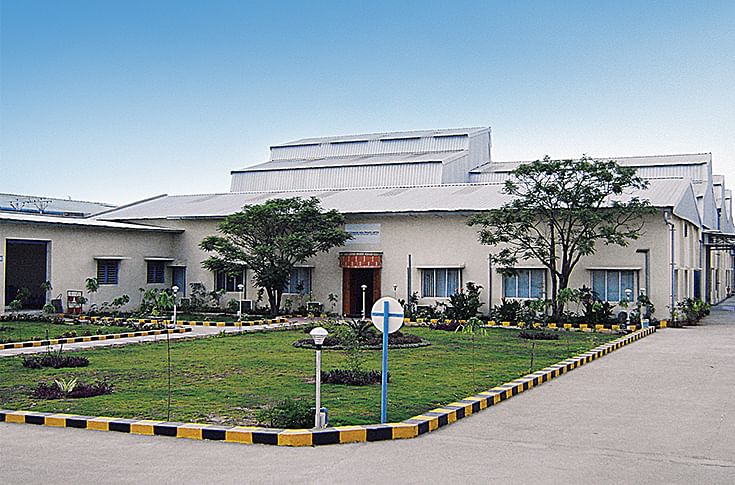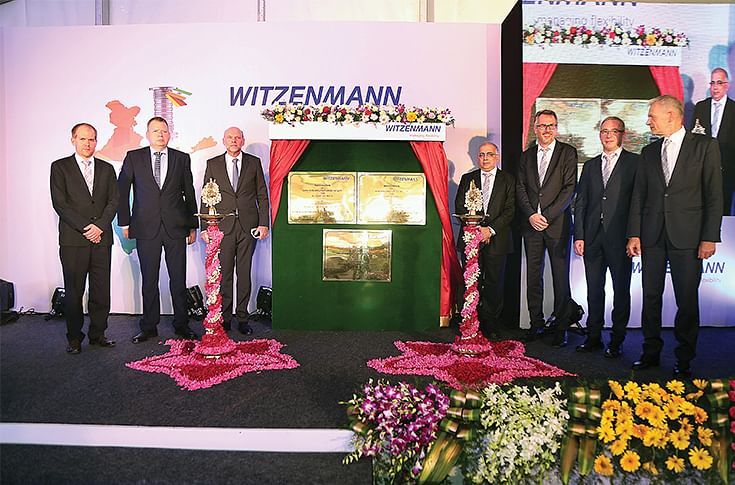Witzenmann India readies for BS VI era
The Chennai-based supplier is ready for the implementation of the BS VI emission norms by April 2020 with its host of products.
As passenger vehicle and commercial vehicle OEMs in India gear up for new emission norms to kick in by April 2020, Chennai-based supplier prepares for new demand for its exhaust gas recirculation lines and exhaust decouplers, among a host of products.
With BS VI emission norms, which will hugely impact the domestic automobile industry, now barely 17 months away, the automotive supply chain in India is already gearing up for change. The Chennai-based Witzenmann India, which offers solutions that perceptibly improve the lifespan, efficiency and comfort of a car, is already readying for the BS VI era. Its major product – exhaust decouplers – provide substantial thermal benefits as an insulated decoupler could favourably effect and enhance aftertreatment component efficiency, and in turn facilitate the use of exhaust systems to help increase fuel efficiency and also reduce emissions.
In the area of exhaust gases, Witzenmann's solutions include decoupling elements or expansion elements of different design that decouple vibrations, heat expansions or engine motions. Flexible exhaust gas recirculation lines contribute significantly to improved pollutant emissions as the formation of nitrogen oxides in the combustion process is reduced. In oil, fuel and cooling circuits, the advantages of flexible metal lines are their absolute gas and diffusion tightness, long lifespan and temperature resistance. These are essential, especially when they are being built close to exhaust manifolds, turbochargers or the exhaust system.
Witzenmann India, the wholly owned subsidiary of the German-based Witzenmann Group which is a leading supplier to the global auto industry, has a varied product range including decoupling elements/hose joints, exhaust expansion elements, exhaust gas return pipes, return lines for oil and water, bellow elements for fuel pumps or piezo injectors and corrugated hoses for gas or water. Recently, the company expanded its Chennai plant by setting up an additional line to manufacture expansion joint pipe assembly and cooling supply systems.
Automotive as a growth driver
Witzenmann India is bullish on demand coming its way from the Indian automotive industry, which contributes 85 percent of its India business, particularly with upcoming BS VI emission norms promising higher growth opportunity from Indian passenger vehicle and commercial vehicle OEMs. The company has a strong presence in the passenger car segment with an over 50 percent market share in the exhaust gas decoupler, exhaust gas duct and exhaust gas recirculation line product portfolio. Its main clients include Hyundai Motor India, Maruti Suzuki India, Mahindra & Mahindra, Honda Cars India, Tata Motors and Renault India. The company believes BS VI norms will also help it enhance its connect with India’s commercial vehicle segment and it is currently working closely with leading CV manufacturers.
The company's global team at the inauguration of the new line at Chennai plant.
Speaking on the company’s India business, V Chandrasekhar, president and CEO, Witzenmann India said, “Our automotive business has been growing rapidly over the past few years. We anticipate this growth to continue, going forward, with new emission norms around the corner. We are catering to all the automotive OEMs in India with a significant market in our product segments.”
“India is one of the fastest growing major economies in the world and predicted to become the third largest automotive market by 2030. This provides opportunities for not just for vehicle manufacturers but for suppliers too. We are bullish on the potential India offers to us in the future. We are committed to this market and ready to invest further in the future,” said Dr Gerhard Flöck, managing director, Human Resources, Finance, Controlling, Material, Witzenmann GmbH.
Starting off with Hyundai in India
Established in 2001, Witzenmann India started catering to the industrial sector with high-quality products such as metal hoses, expansion joints, metal bellows, pipe supports and hangers. In 2006, a metal bellows assembly operation was set up in Kolkata. In 2008, the company set up the manufacturing facility in Chennai to cater to its first automotive customer – Hyundai Motor India.
Elaborating on the company’s journey in the Indian automotive sector, Chandrasekhar said, “It was in 2007-08 when Hyundai India wanted to localise decouplers which it was importing at the time. When Hyundai’s volumes picked up in India, they wanted to stop the imports and invited us to supply in India. What helped was that we were Hyundai’s existing supplier in the Korean market. So at the request of our first OEM client in India, we decided to set up our manufacturing footprint in Chennai.”
The company, which started with supplies of 200,000 decouplers to Hyundai per annum in 2008, today is an over two- million-units operation to several carmakers. It is today the single-source supplier to Hyundai India. Similarly, Witzenmann is a global supplier to Volkswagen, which also chose the company for its India requirements. Importantly, the company has helped enable import substitution, offering significant value to its customers and also superior global German quality.
Focus on localisation
The manufacturing of bellows and liners has helped the company to achieve complete localisation of its automobile exhaust decouplers. At present Witzenmann India supplies exhaust decouplers for diesel engines for Hyundai India and Maruti Suzuki; the petrol engines that both these OEMs use alternate technology as the vibration is less compared to diesel engines. However, for Tata Motors and Mahindra & Mahindra, the company supplies exhaust decouplers for both diesel and petrol engines.
In India, the company supplies its exhaust decouplers to passenger vehicles, commercial vehicles, industrial engines and off-highway equipment. Till date, it has invested nearly Rs 80 crore in India and has with over 200 employees at its Chennai and Kolkata plants. The company says it has manufactured more than 10 million exhaust decouplers for cars and commercial vehicles for the India market till now.
Witzenmann India is now a leading supplier to PVs from Tata Motors and Mahindra & Mahindra.

Witzenmann India's Chennai plant caters to a good number of passenger vehicle and commercial vehicle manufacturers.
As for the commercial vehicle segment, it has recently begun supplies after the industry has moved to BS IV emission standards in July 2017. Among CV players, Ashok Leyland was its first customer for its main truck models. Likewise, it now supplies to select models from Tata Motors.
Bullish on BS VI
The upcoming BS VI emission norms provide a huge opportunity for Witzenmann India as these products are mandatory as the exhaust systems should be leak-tight, therefore, flexible elements are necessary. The company is already working with major CV players across key models in both the truck and bus segments, where it foresees greater prospects to increase its market share. In the passenger car segment, the company already has in excess of 50 percent market share, which it not only confident of protecting but also increasing.
In the current fiscal year, the company is targeting manufacture of close to 2 million exhaust decouplers for the domestic automotive industry. Even with this scale of production, the company will have sizeable capacity to ramp up production in the near term. In FY2009, when Witzenmann India began operations in auto, it recorded a Rs 20 crore turnover. Ten years later, it is set to touch the Rs 100-crore mark, with 85 percent contribution from the automotive sector and CAGR growth of nearly 20 percent.
Now, with every OEM in India actively engaged in BS VI-related programs, Witzenmann will be looking to further drive gains.
(This article was first featured in the 15 October 2018 issue of Autocar Professional)
RELATED ARTICLES
Inside Mahindra Last Mile Mobility’s Rs 500 Crore Modular Platform Strategy
Mahindra Last Mile Mobility has launched the UDO, an electric three-wheeler built on a new Rs 500-crore modular platform...
How the India-EU Trade Deal Could Quietly Reshape the Auto Industry
While immediate price relief for the buyer is unlikely, the India-EU FTA will help reshape long-term industry strategy, ...
Policy, Protectionism and Pressure: Inside India’s Construction Equipment Downturn
India’s construction equipment sector faces a tough battle as it takes on cheaper imports from China and a slowdown in g...






 07 Nov 2018
07 Nov 2018
 9049 Views
9049 Views






 Shahkar Abidi
Shahkar Abidi


 Prerna Lidhoo
Prerna Lidhoo


